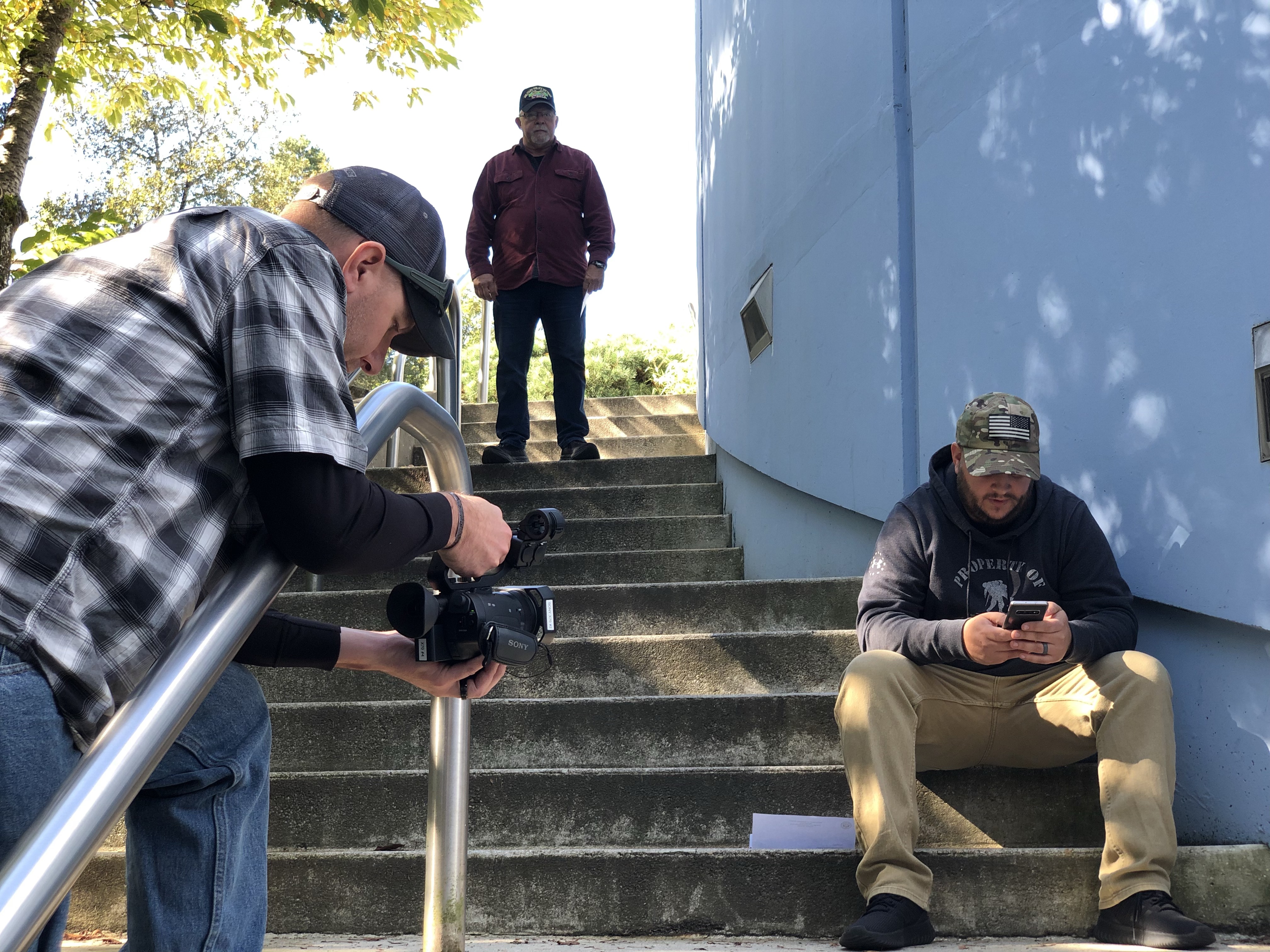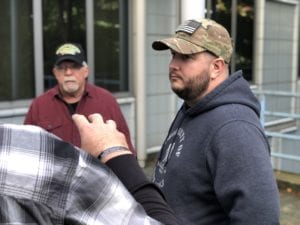“Experiences I Tried to Forget…” A Comcast Technician and Army Vet Makes a Short Film Thanks to Comcast and the Patton Veterans Project

By Jonathon Humphreys
[You can watch Jon’s movie, Gen3rations, here.]
It was my manager who first let me know about the Patton Veterans Film Project. He emailed me, suggesting I would be a good candidate to participate in a three-day crash-course in filmmaking specifically designed for veterans offered by Comcast and the Patton Veterans Project. I had no prior experience making films.
I went in with an open mind, hoping I could tell my story and show my struggles with PTSD from my multiple deployments to Afghanistan and Iraq and the challenges of transitioning out of the military. When I first got hired on as a technician at Comcast, I was only six months out of a combat tour in Afghanistan, doing route clearance on Highway 1, the main route connecting Kabul with rest of the country.
I did well during my eight years in the Army and three combat tours. I ended up going to Iraq shortly after arriving at my first duty station. I was young – just 21 — and didn’t let a lot bother me. Later I was transferred to Fort Drum N.Y. and 30 days after that I was in Afghanistan.
Shortly after we got back, I met the woman who would become my wife, and we got married very quickly. With all the sudden changes in my life, I started to feel the effects of PTSD and anxiety creeping in.

I discovered that when you get married, you stop thinking about your own needs. I didn’t have a care in the world on my prior deployments. When I was single, I didn’t have to worry about who was taking care of my wife while I was away or the feeling of, “Wow, I’m going to be separated from my life partner for a whole year.” I decided after that deployment I was going to get out and no one was going to keep me away from my family or what I want to accomplish in life.
When I got back home to Oregon, I started working for Comcast. One of the driving factors that got me hired was my military background. It was clear that the company was proud of the veterans already on their teams. The hiring managers told me about VetNet and how much Comcast appreciates and loves to thank veterans.
About a year into my Comcast job, I had a really bad day. Experiences I had tried to forget started to come back up like a bottle of soda that has been sitting in the sun too long. That was when I saw the dedication of my Comcast team to make sure we all succeed and win together. I was sitting in my van in a Burger King parking lot, frozen in place. I managed to call my supervisor and let him know I needed to go home and that I couldn’t talk about it. He respected my wishes and asked no questions, permitting me the rest of the day off. Later that day, I ended up telling him what was going on and that I was going to get some help. He told me to take as much time as I needed and reassured me that my health and well-being always come first. That understanding really meant a lot.
This blog post was supposed to be about what I got out of the Patton Veterans Project, but I felt like it wouldn’t make a whole lot of sense without some backstory. When I first arrived at the filmmaking workshop, I noticed that I was the only guy in the room on the student/veteran side of things. I briefly considered leaving, but as it turns out, a couple of people showed up late, and I became more comfortable with the plan for the weekend of movie-making.
I went into the workshop with a lot of unknowns about what we were going to do. I can be shy or standoffish, but by the end of our movie I was helping our group and putting in my own two cents to make sure that my story was heard and didn’t get lost in the mix with the three other veterans who were working on it.
Ben Patton [editor’s note: grandson of General George S. Patton] is such a cool guy — he kept everything on a personal level with us in the class and that really matters because it really gives us veterans the feeling that he is comfortable with us and he is only there because he wants to be and wants to help. His crew is so top-notch I didn’t even realize the people we would be working with would be actual professional videographers flown in to assist us. My group was led by a videographer named Chris, who brought everyone together as a unit. He is quiet person, but when it was time to start making the movie magic happen, he was never afraid to show us a better approach or try something that we didn’t know was possible. He made us comfortable by finding ways for us to answer our own questions.
In our filmmaking, we all wanted to use pictures from our military service as props. I realized that during the five years I’ve been out of the military, I have lost touch with some of the most influential people in my life — and some of my best friends. This was one of the biggest surprises to me. I didn’t get a lot of sleep after the first night of class, thinking about this. I quickly went on a mission to find more pictures from my buddies who I am still in contact with. I ended up getting a ton of pictures and having some good conversations about what we’re all doing. I explained the filmmaking project and all of them seemed very responsive.
Ben told us that movie making can be a therapeutic experience and I agree. It’s hard when you’re putting yourself out there like this to not think, “Should I be doing this? Are my coworkers going to understand what I was trying to say, or will they just dismiss it?” I feel like I took a risk putting myself out there, making a short film and then having it screened at the Portland Film Festival. And being able to answer audience questions about the experience was amazing. Thanks to Comcast, and especially Brig. Gen. Carol Eggert (who I got to meet at the Film Festival) for making this experience possible. The bonus: I got to meet some great vets and we all shared contact info so we can stay in touch.